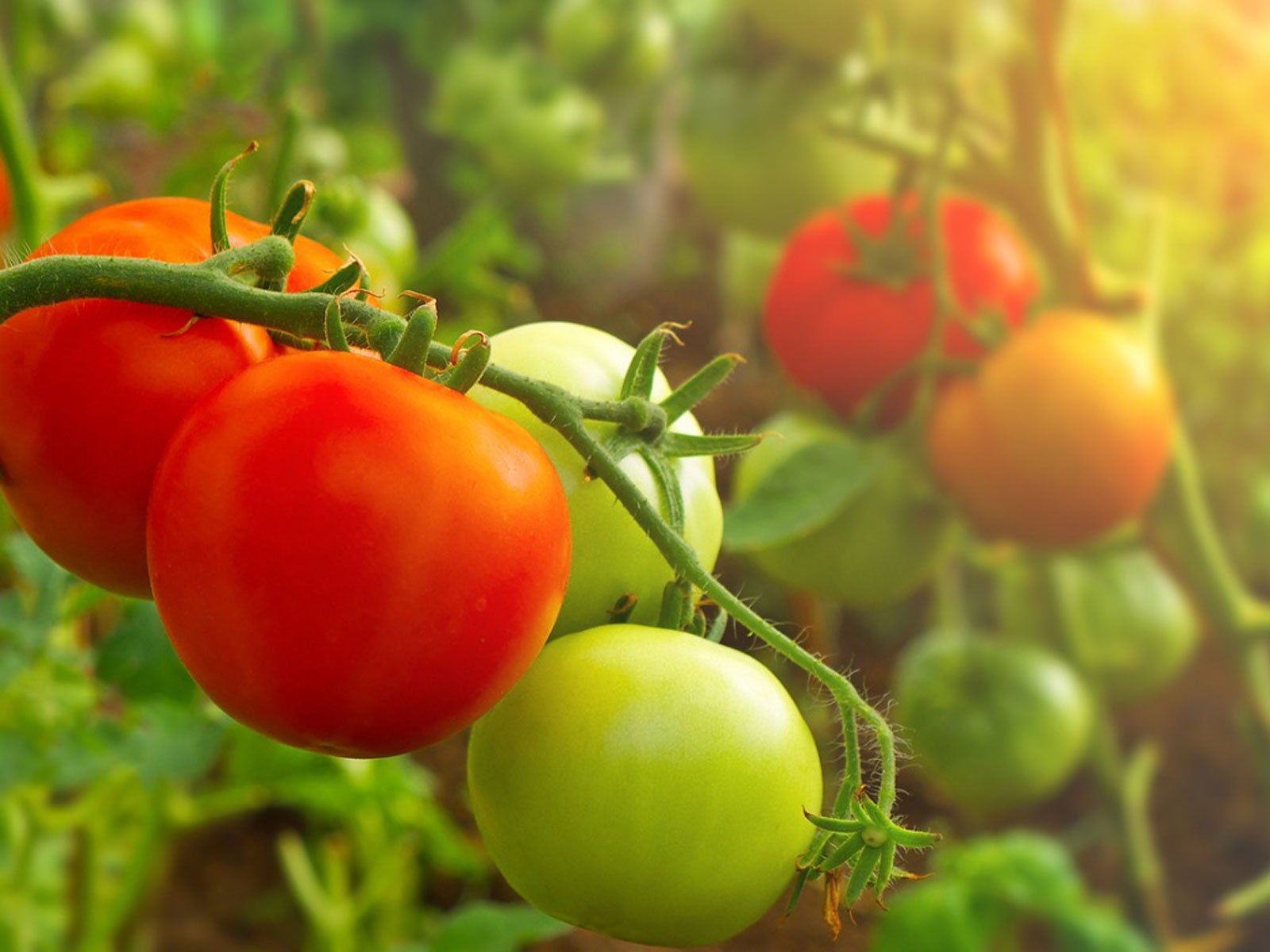Fall Tomatoes – What To Do With End Of Season Tomato Plants


The glorious days of summer must come to an end and fall will start to encroach. Autumn tomato plants usually have some final crop clinging to them in various stages of ripeness. Temperature dictates when the tomatoes will ripen, and cooler temperatures will slow the process. The longer you can leave the fruit on the vine though, the sweeter fall tomatoes will become. Tomatoes at the end of season may still be delicious with a few tips and tricks.
Tomato Do’s and Don’ts
Enthusiastic gardeners usually have a list of tomato do’s and don'ts but must be prepared for surprises as well. End of season tomato plants may be subject to a sudden freeze and are in danger of a quick kill. However, all is not lost in fall. Even northern gardeners can save that last crop and ripen it with better results than store bought fruit.
It is important to have good soil, the right kind of tomato for your zone, and good cultivation practices. Those heavy fruit must be staked to avoid stem breakage and watered deeply. Mulch will conserve moisture, and drip or soaker hoses are great ways to water and avoid fungal problems. Watch for pests and hand pick or use diatomaceous earth to reduce insect issues.
Near the end of the season, you can use a red plastic mulch around the plants to hasten ripening. Finally, watch the weather forecast. If temperatures are falling below 50 degrees F. (10 C.), start pulling the green ones and ripen them indoors.
Ripening Tomatoes at End of Season
Many gardeners simply place tomatoes in a warm location to ripen. This will work most of the time but takes a while, meaning the fruit could start to rot before it turns red. A quicker way to deal with fall tomatoes is to place them in a paper bag with slices of apple or a ripe tomato.
Check them daily and pull those that have colored out. Keep in mind that whitish green fruit will need longer to ripen than tomatoes already tinged with a little orange.
Another way to ripen is to wrap each fruit in newspaper and store where temperatures are between 65 and 75 degrees F. (18-24 C.) in a single layer. Alternatively, pull up the whole plant and hang it upside down in the garage or basement.
Sign up for the Gardening Know How newsletter today and receive a free copy of our e-book "How to Grow Delicious Tomatoes".
What to Do with Green Tomatoes
If you've run out of options for your end of season tomato plants, harvest all you can, even the green ones. Green tomatoes are a delicious dish if cooked properly and are standard southern fare. Slice them up and dip them in egg, buttermilk, flour, and cornmeal. Fry them up and serve with a dip or turn them into a BLT. Delicious.
You can also add them to Tex-Mex rice for a zesty flavor. Green tomatoes also make excellent ketchup, salsa, relish, and pickles. So even if your fruit doesn't all get ripe, there are still many yummy options to use up the crop.
Don’t let cooler fall temps and green tomatoes prevent you from reaping a full harvest.

Bonnie Grant is a professional landscaper with a Certification in Urban Gardening. She has been gardening and writing for 15 years. A former professional chef, she has a passion for edible landscaping.